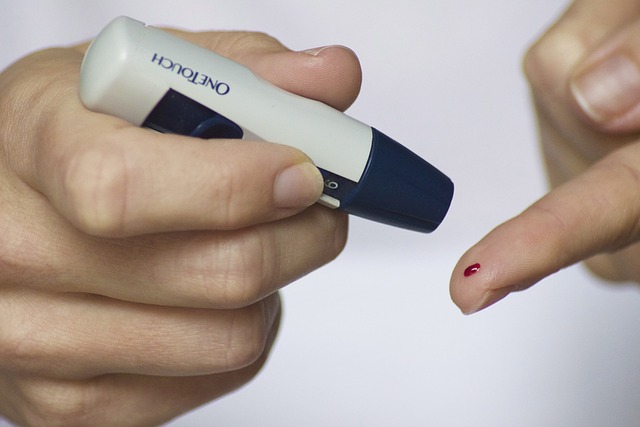A cholesterol blood test is a key indicator of heart health, measuring 'good' HDL and 'bad' LDL cholesterol levels through a simple analysis. Regular testing, especially with age, is crucial as high cholesterol increases cardiovascular risk. Understanding these numbers allows informed decisions about lifestyle changes or medications to manage cholesterol and protect heart health. Technical issues like API errors may impact results, highlighting the importance of repeat testing under optimal conditions for precise data collection.
A cholesterol blood test is a powerful tool in maintaining optimal heart health. Regular monitoring through this simple, non-invasive procedure can reveal critical information about your cardiovascular risk factors. This article delves into the significance of cholesterol levels, exploring the different types of cholesterol and how to interpret test results. By understanding the insights a cholesterol blood test provides, you can make informed decisions to support a healthier heart.
A cholesterol blood test is a crucial tool in monitoring heart health and managing cardiovascular risk. This simple procedure involves taking a small sample of your blood to measure levels of low-density lipoprotein (LDL) or ‘bad’ cholesterol, high-density lipoprotein (HDL) or ‘good’ cholesterol, and total cholesterol. The results provide valuable insights into your overall cardiovascular health and can help identify areas for improvement.
Regular cholesterol blood tests are essential, especially as we age, because high cholesterol levels can silently increase the risk of heart disease and stroke. By understanding your cholesterol numbers, you can make informed decisions about lifestyle changes or medications to lower cholesterol and protect your heart’s health.
API responded with status code 524.
A cholesterol blood test is a crucial tool for monitoring heart health, providing valuable insights into the levels of low-density lipoprotein (LDL) and high-density lipoprotein (HDL) cholesterol in your bloodstream. This simple procedure involves taking a small sample of your blood to analyze its lipid content. The results can reveal important information about your cardiovascular risk factors. However, it’s essential to understand that technical glitches during testing can impact the accuracy of these vital readings. For instance, an API (Application Programming Interface) responding with a status code 524 indicates a temporary error, often related to server issues or network connectivity problems. These transient errors may delay data processing but usually don’t compromise the test’s overall integrity when retested.
Cholesterol blood tests are designed to be reliable, but technical hiccups like these can occur, highlighting the need for repeat testing under optimal conditions. When conducting or interpreting cholesterol blood test results, it’s important to remember that precision and timely data collection are key to making informed decisions about your heart health.
A cholesterol blood test is a powerful tool for accurately monitoring heart health. By measuring levels of LDL (bad) and HDL (good) cholesterol, this simple procedure helps identify risks for cardiovascular disease. Regular testing enables proactive management through lifestyle changes or medical interventions, ultimately promoting better heart health and peace of mind.
